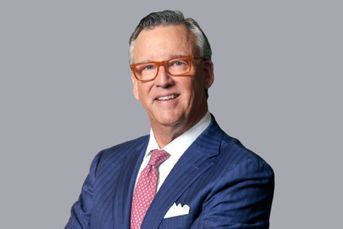Buy, sell or be outbid: How M&A is affecting retirement plan advisers

Ongoing consolidation has been good for some aggregator firms, but others are being left out.
Private equity firms have shown an intense interest in the 401(k) world, and the massive amounts they’ve been paying to acquire businesses has created opportunities and challenges for retirement plan advisers.
Buyers can expect to pay as much as an estimated 20 times the amount of a target firm’s earnings before interest, tax, depreciation and amortization, or EBITDA. For retirement plan advisers looking to sell, this is an extremely attractive time for deals, according to attendees at the RPA Convergence Aggregator Roundtable and Think Tank on Dec. 8-9.
But it’s also a difficult time for smaller firms that don’t have abundant capital to grow through acquisitions, guests said.
[More: View a list of the largest retirement adviser aggregators]
“When I talk to people about acquisitions in this business, it’s honestly third-grade math, and people aren’t making stupid decisions,” said Glenn Spencer, CEO of Prime Capital Investment Advisors. Paying higher-than-usual EBITDA multiples can work because capital is abundant and debt is cheap, Spencer said. If the acquired business can generate revenue higher than the interest payments and can be sold for more than what the buyer paid, deals make sense, he said.
Prime Capital subsidiary Qualified Plan Advisors is currently in the process of buying First National Bank of Omaha’s retirement advisory practice. That deal was expected to close Dec. 31.
“The multiples are way higher than they were, say, 24 months ago,” Spencer said. “It’s a highly fragmented industry. These relatively smaller firms can gain a lot of benefit from attaching to someone who has a lot more resources.”
But some firms have seen themselves being outbid by competing buyers with deeper pockets. John Cunningham, senior vice president of Alliant’s Retirement Services Group, compared the experience to being outbid on a home.
“We’re out, on some acquisitions,” Cunningham said. “We’re at a point where these valuations are just too high. It’s great for some of my old friends, colleagues and associates … but I don’t think we’ll be a firm that pays multiples of 11 to 13 times [EBITA] for these firms. I just don’t think they’re worth that.”
A likely consequence of the proliferation of mergers and acquisitions is that smaller firms that are part of an aggregator might find themselves becoming part of a company that isn’t a good fit, he said.
“For the smaller firms, stay tuned. You’re going to have some groups, with all good intentions, that have decided to merge,” Cunningham said. “Some people are going to … exit some of these aggregator firms, [having] decided that new home wasn’t the home for them.”
This is not lost on many sellers, who want their business to mesh well with the buyer’s, said Joe DeNoyior, president of Washington Financial Group.
“The sellers are becoming much more conscious of [whether] this [is] the right fit for the principals of the selling firm,” he said. “We can call it whatever we want, but it’s an investment in people and process.”
The industry will continue to consolidate over the next five years, though the pricing at high multiples of EBITDA could start to come down sooner, attendees said.
Firms that aren’t contenders to buy or be bought need to focus on growing the old-fashioned way, said Jeff Cullen, managing partner at Strategic Retirement Partners.
“There are a lot of firms in the industry … that can’t afford to pay these eye-popping multiples several times a year,” Cullen said. For those firms, “if I want to grow as fast as others, I need to have a focus on organic growth.”
What RPAs should keep in mind is that scale is more about efficiency than bulk, he said. And in the current environment, in which there are few RPAs that don’t already have a wealth management business, firms should get back to the basics.
“Most advisers started out with a focus on the participant. And as their businesses grew, they got farther away from the participant,” Cullen said. “The opportunity is getting back to the way many of us started.”
Captrust, the largest independent RPA, this year got a cash infusion from Chicago-based GTCR, representing a 25% stake in the firm.
“For us, the opportunity set hasn’t changed in 14 years, and I suspect it won’t change for the next 14,” said Rick Shoff, managing director of Captrust’s advisor group.
Even if firms are on acquisition tears, a true indication of a company’s health is its ability to increase sales internally, or through organic growth, Shoff said.
“There are still some hidden gems out there that we haven’t seen yet,” he said of potential acquisition targets. But over the coming years, “I think there will be a lot of buyers in a trough of disillusionment about what they bought.”
Learn more about reprints and licensing for this article.








